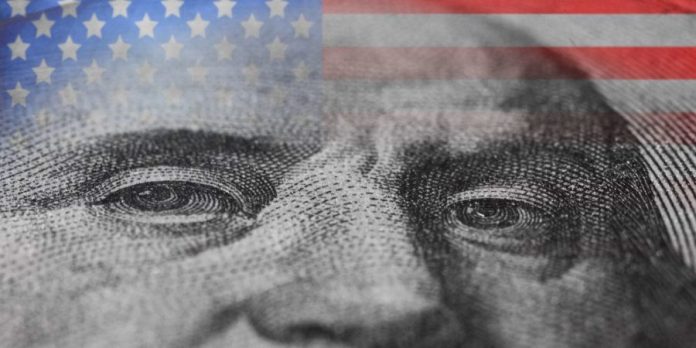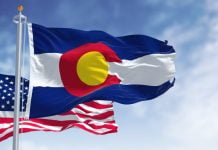Matthew Amato, analyst at sports data firm LineUps.com brings us the latest monthly round up of sports wagering revenue and expert insights from across the US.
In a somewhat surprising turn of events, May 2021 led to a bounce-back in sports betting for many states. April 2021 was a massive disappointment pretty much across the board when it came to sports wagering handle and revenue. However, May 2021 proved to be a solid month for many markets.
When looking deeper into why this may have happened, the most significant change has to be the amount of playoff basketball and hockey that was going on. While April had MLB, NBA, and NHL games to wager on, there has been a much bigger spotlight cast upon the playoff games that started in May for the NHL and NBA. These games pull in a lot more wagers as they are often nationally televised and much more competitive.
Unfortunately, several states have been extremely late in releasing their May 2021 sports betting numbers. This will be something to keep an eye out for as transparency is massive when it comes to sports betting, and if regulators become lazy when it comes to reporting numbers, it could lead to more strict regulation from the states or federally.
For now, these are the top five states that have reported their sports betting numbers for May 2021.
New Jersey
Handle: $814,270,654 Revenue: $52,895,430 Taxes: $6,775,113</b>
New Jersey has had an extremely interesting start to 2021. The January handle that it pulled in almost reached a billion dollars and set the record for the best sports betting month ever in the United States. However, both February and April were rather disappointing with sub-$750m handles. Now, May has bounced back with a huge handle, but a revenue total that is actually lower than April’s. While sportsbooks collected a lot of wagers in May, it seemed to have been a great month for the bettors.
Unfortunately, this means that New Jersey did not pull in big numbers when it came to tax revenue. The $6.7m is a far cry from the over $10m in tax revenue that the state made during January.
Another way to put the May 2021 numbers into perspective would be to compare them to May 2020; however, that becomes difficult due to the halt on sports that the pandemic produced in 2020. When looking at May 2019’s handle, a more reasonable comparison, this $814m wagered in New Jersey represents a 155% increase in wagers from two years prior.
Pennsylvania
Handle: $447,465,027 Revenue: $27,746,484 Taxes: $9,988,734
Pennsylvania is actually one of the few states that saw a decrease in its May 2021 handle when comparing it to April. Pennsylvania has been on a pretty steady decline since March Madness boosted its wagers. However, interestingly enough, the tax revenue for the state has actually increased in both April and now May. This is a complete reversal of New Jersey.
Pennsylvania has been crushing the sports betting scene. While the handle continues to fluctuate in the top five, the tax revenue that the state is pulling in is constantly atop the charts. This is massively important as it proves to the other states in the union that you can make significant money for the state through regulated online sports betting.
Michigan
Handle: $257,748,035 Revenue: $21,228,714 Taxes: $681,248
Following the extremely hot start to Michigan online sports betting that launched in late January, the numbers are finally coming back down to Earth as Michigan witnesses its second straight down month. However, there are some major silver linings despite the lowest full-month revenue numbers that Michigan has ever had. For one, Michigan is still in its betting infancy, and coming out as a top five state quickly means that it likely has what it takes to compete with Pennsylvania and maybe even Nevada come NFL season.
One possible theory to explain the lower betting numbers in May compared to February, March, and April is the fact that Michigan sports teams are not participating in the playoffs. The Pistons and Blackhawks were both horrible this year and had not really played meaningful games since February. This means that the state is not benefitting from a local boost to its sports betting handle.
Indiana
Handle: $254,445,226 Revenue: $18,853,192 Taxes: $1,791,053
Indiana put up an impressive month in May as it increased its total wagers from April and only saw a minor decrease in revenue. However, the most impressive part is the fact that it continues to hang with the big markets in terms of online sports betting.
Indiana is in talks to allow online casino gaming, and if those plans go through, the state could become a surprising hot spot for iGaming. The biggest threat to the continuation of this trend is Ohio legalizing sports betting and cutting into the market for Indiana.
It is worth noting that Indiana continues to pull in significant amounts of tax revenue relative to the size of the state. An example of how successful Indiana has been is the fact that it was able to almost triple the tax revenue of Michigan off of less revenue from the sportsbooks in May 2021.
Colorado
Handle: $248,968,193 Revenue: $15,154,760.58 Taxes: $635,640.65
Colorado has become an absolute hotbed for sports betting in the Western United States. While the numbers are not mind-blowing, they are solid. The state was able to put up basically the same numbers that we saw in April, in May. The very lax regulation and licensing for sportsbooks have allowed competition to breed in the state, giving bettors more of a reason to place wagers, as they are getting very good values. Both Betway and Bally’s recently launched in June, and the new Sports Illustrated Sportsbook announced that Colorado would be the first market it would enter. Colorado is seeing success when it comes to attracting sports betting brands.
Where Colorado may not be seeing success is turning wagers into state revenue. Colorado recorded only $635k in tax revenue, despite putting up a sports betting handle of almost $250m. This is the price Colorado pays to be an attractive destination to sportsbooks and brands in the United States. Only time will tell if this model will work out, and eventually, the pure volume of betting starts to bring in sizeable revenue for the state.















